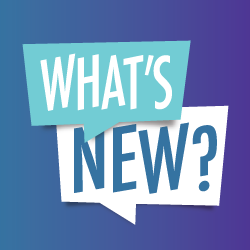What’s New in K-12 Competency-Based Education?
CompetencyWorks Blog
 Competency-Based Education Resources
Competency-Based Education Resources
- Education Policy Issues for the COVID-19 Era: Policy Actions and Responses to Leverage the Moment for Future Readiness – This new report offers recommendations on 10 critical issues identified through the Aurora Institute’s work with education policy makers around the country. The report offers strategic guidance for building capacity for competency-based education and moving away from seat-time credits toward awarding credit based on demonstrated mastery.
- Policy Solutions That Foster Competency-Based Learning – In this policy brief, Sarah Jenkins illustrates three ways that personalized, competency-based education can enable a more equitable transition from high school to post-secondary education in the face of pandemic-related disruptions. Strategies include profile of a graduate, statewide competencies, and anytime/anywhere learning.
- Increasing Capacity for Mastery-Based Learning in Washington State – This webinar describes how Washington is building statewide mastery-based learning capacity, including legislation, policies, and regulations, as well as using COVID-19 school closures as an opportunity to rethink delivery of education and move toward mastery-based learning. The presenters, from a legislative workgroup, include a state senator, state representative, university chancellor, high school principal, high school student, and state board of education policy manager.
- The Canopy Project allows education leaders, school designers, and researchers to search for schools engaged in specific innovative practices, including competency-based education. The portal describes each school’s practices and provides resources to help other schools develop similar practices.
Equity-Focused Resources
- Increasing the Racial, Ethnic, and Linguistic Diversity of the Educator Workforce – This new report from the New England Secondary School Consortium offers pathways to diversifying the educator workforce. It lays out a framework for supporting diverse educators and action strategies for policymakers, community members, and leaders from K-12 and higher education.
- This Is Our Chance Film Fest is sponsored by several organizations working toward a more socially just and empowering education system. Films for Week 1 (October 6-12) include Black Boys, 13th, Teach Us All, and inspiring, educational shorts such as Equity Mindset in Practice and Walking in Solidarity. Discussion guides are also provided.
Building Powerful School Culture
- We Are Crew: A Teamwork Approach to School Culture – Based on EL Education’s “Crew” model, Ron Berger, Anne Vilen, and Libby Woodfin published this practical guide to developing a school culture that nurtures social-emotional and academic development, affirms diverse identities, and fosters belonging. Videos, an online toolkit, and materials to support professional learning are also provided.
Professional Learning
- Developing a Student-Centered Workforce Through Micro-credentials provides an approach to preparing educators to support student-centered learning. The report from Heather Staker, Thomas Arnett, and Allison Powell proposes a comprehensive set of stackable micro-credentials that can be customized for different schooling models and recommendations for advancing the micro-credentialing ecosystem.
- Getting Started With Project-Based Learning – PBLWorks offers an 8-week course in which educators adapt one of 72 standards-based PBL projects for their students via remote or in-person learning. Educators also learn essential elements of project-based learning design, implementation, and equity strategies.
Aurora Institute All-Fall Pre-Symposium 2020 Webinar Series
The series features administrators, educators, lawmakers, and researchers discussing the field’s most challenging topics and timely, creative solutions for leaders. Links to the videos and slide decks are provided below. Sessions include:
- Taking an Equity-Based Approach to Advancing a Research and Learning Agenda (City Year)
- Elevating Student Experience to Build Equitable Learning Environments and Outcomes (Leading Partnerships, Project for Education Research That Scales, and Walter Payton College Preparatory High School.)
- When Access Isn’t Equal: How the Pandemic Amplified Our Nation’s Equity Gaps (Texas Distance Learning Association, University of Kansas, and Digital Learning Collaborative)
- Learning Models for Difference Making in Communities (Crosstown High, Getting Smart, Latitude High School, and One Stone)
- Using Research & Development to Redesign: Immediately Implementable Methods and Practices to Accelerate Learning and Results for ALL Kids (Transcend)
- Transitioning to Remote Learning: Free Online Professional Learning Opportunities for Teachers (Michigan Virtual)
- Shifting to Online Bite-Sized Professional Learning (Dallas Independent School District)
- Measuring Personalized Professional Learning: A Three-Year Study of What Works Best, For Whom, Under What Conditions, and Why (The Learning Accelerator, Lindsay Unified School District)
- Strengthening the Learning Relationships Between Teachers, Families, and Students: Our Framework, Interventions, and Evaluation Efforts (PowerMyLearning)
- Assessing Field-level Change: Lessons from the Evaluation of the Assessment for Learning Project (Social Policy Research Associates, Stanford Center for Opportunity Policy in Education)
- Integrating Project-Based Learning in Online and Blended Courses in Indiana (Horizon Education Alliance, Indiana State Board of Education, Middlebury Community Schools)
- Putting Data to Work: Formative Evaluation and Continuous Improvement in Transformative Education Efforts (KnowledgeWorks, WestEd, Oakes Public Schools)
- NCAA Review Process: Why and How…and What’s Different During COVID-19? (NCAA)
Eliot Levine is the Aurora Institute’s Research Director and leads CompetencyWorks.